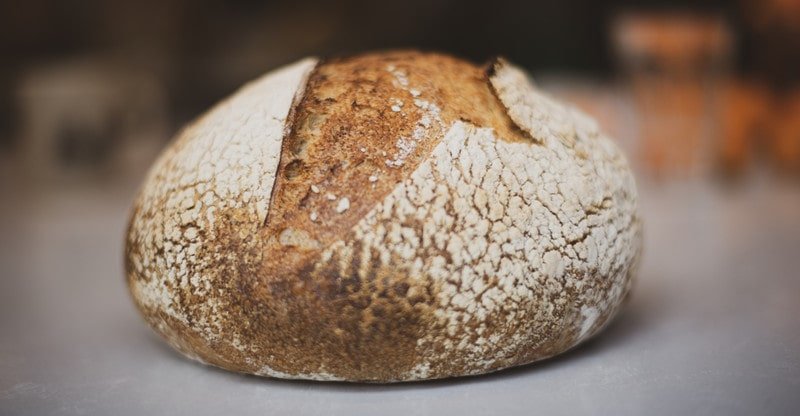
As the calendar flips to a new year, countless people set out on paths of personal growth, with a growing number choosing to join the Dry January initiative. This yearly commitment means going alcohol-free throughout January, offering a revitalizing way to start fresh, disrupt detrimental patterns, and reap various health advantages. Yet, like any resolution, maintaining momentum can prove difficult.
In this piece, we’ll examine the typical obstacles encountered during Dryish January and, more crucially, provide you with a range of effective methods and resources to help you thrive in your alcohol-free pursuit.
### Grasping the Obstacles Ahead
It’s vital to first recognize the potential roadblocks before exploring the solutions that can help you master Dry January. Acknowledging these barriers early allows for better preparation and strategy.
**Social Dynamics:** One prominent hurdle is the influence from peers to consume alcohol. Events like parties, get-togethers, or casual meals with acquaintances often center around drinks, and declining that glass of wine or beer might draw surprised reactions or gentle pushback. According to surveys, over 70% of participants report social situations as their biggest challenge, highlighting how ingrained alcohol is in social norms.
**Intense Urges:** If alcohol has been a regular part of your routine, such as an evening unwind, your body may strongly yearn for it during this period. These desires can linger, making it a persistent test of willpower. Research from addiction studies shows that cravings peak in the first week but diminish with consistent effort.
**Entrenched Routines:** For many, alcohol is woven into daily habits, like sipping a drink after work or with meals. Disrupting these patterns can be especially tough during stressful times or monotonous days. Experts note that habits formed over years can take 21 to 66 days to break, underscoring the need for proactive changes.
**Emotional Triggers:** Individuals frequently rely on alcohol to manage feelings of boredom or anxiety. In Dry January, developing alternative coping strategies becomes essential for emotional balance. Data from mental health organizations indicate that mindfulness practices can reduce stress by up to 30%, offering a viable substitute.
**Absence of Support:** Without external encouragement or a system of accountability, it’s easy to falter and justify a slip-up that escalates. The Dry January campaign, launched by Alcohol Change UK in 2013, has helped millions by fostering community, emphasizing how shared experiences can bolster resolve.
### Key Strategies for Achieving Dry January Goals
Having outlined the common hurdles, let’s shift to the practical approaches and aids that can guide you through Dry January effectively, ensuring a seamless and rewarding experience.
#### Digital Apps and Monitoring Tools
In our tech-driven world, specialized applications abound for initiatives like Dry January. These tools can track your sober days, estimate savings from skipping drinks, and deliver inspiring messages to sustain your drive. Popular options include apps such as “Dry January and Beyond” and “I Am Sober,” which incorporate features like daily reminders and progress badges—elements backed by behavioral science to enhance user engagement and success rates.
#### Non-Alcoholic Beverage Options
Countering cravings and social expectations can be eased by keeping alcohol-free choices on hand. Options like non-alcoholic beers, zero-proof wines, or creative mocktails allow you to join in the fun of social drinking without the buzz. The non-alcoholic beverage market has grown by 30% in recent years, providing high-quality alternatives that mimic the taste and ritual of traditional drinks.
#### Mindfulness and Meditation Resources
Triggers like stress or monotony often lead to alcohol use, so apps focused on mindfulness, such as Headspace or Calm, offer techniques to build resilience and stay grounded during vulnerable moments. Studies show that regular meditation can lower cortisol levels by 20-30%, helping to mitigate the emotional pull toward drinking.
#### Community Networks
Engaging with a Dry January group can transform your experience. Whether through online platforms, local meetups, or forums, bonding with like-minded individuals provides a sense of camaraderie and mutual encouragement. For instance, social media challenges have seen participation from over 100,000 people annually, creating a supportive network that promotes accountability and shared tips.
#### Reflective Journaling
Maintaining a journal during Dry January serves as a tool for introspection, allowing you to document your advancements, setbacks, and triumphs. This personal outlet helps you remain aware of your motivations and fosters self-awareness. Journaling has been linked to improved mental health outcomes, with users reporting greater clarity and commitment.
#### Physical Activity Regimens
Incorporating exercise not only enhances physical fitness but also triggers endorphin release, which uplifts mood and curbs cravings. Adding regular workouts to your schedule acts as a positive diversion from alcohol. Health data reveals that participants in alcohol-free challenges who exercise regularly are 25% more likely to complete them successfully.
#### Informational Materials
Empowering yourself with knowledge about the perks of an alcohol-free month can be a strong motivator. Dive into books, articles, or videos that explore how abstaining improves aspects like liver health and cognitive function—benefits supported by research showing reduced blood pressure and better sleep within weeks.
#### Supportive Allies
Pairing up with a friend or relative also embarking on Dry January creates a partnership for encouragement. This alliance offers reciprocal motivation and makes the process more enjoyable. Buddy systems, common in wellness programs, have a proven track record of increasing adherence rates.
#### Tailored Objectives and Incentives
Define specific, attainable targets for your Dry January, such as financial savings, weight management, or enhanced rest. Celebrating milestones with rewards keeps you motivated and focused. Setting SMART goals (Specific, Measurable, Achievable, Relevant, Time-bound) can boost success by 42%, according to goal-setting studies.
#### Expert Advice
If underlying issues like dependency arise, consulting professionals is key. A doctor or counselor can offer tailored guidance for a safe experience. Organizations like the National Health Service recommend professional support for those with heavier drinking habits, ensuring long-term benefits.
#### Sober Gatherings
To ease social pressures, opt for or host events that exclude alcohol, enabling you to enjoy connections without temptation. This approach has gained popularity, with alcohol-free events rising by 50% in urban areas, fostering inclusive environments.
#### Proactive Planning
Anticipate scenarios involving alcohol by preparing your responses in advance. A courteous yet assertive decline can help you handle invitations smoothly. Planning ahead reduces impulse decisions, a tactic endorsed by behavioral experts.
#### Establishing a Sober Daily Routine
Swap old habits for healthier ones, such as picking up a new pastime, joining a group, or prioritizing self-care. Building a fulfilling routine fills the gap left by alcohol and promotes lasting change. Routine restructuring is a core element of habit formation theories.
#### Hydration and Nutrition Focus
Maintaining proper fluid intake and a balanced diet supports your body in managing cravings and stress. Prioritize water and nutrient-rich meals to optimize overall health. Nutritionists advise that adequate hydration can alleviate withdrawal symptoms, aiding your journey.
#### Envisioning Positive Outcomes
Picture the rewards of completing Dry January, from increased energy to clearer thinking, to fuel your determination. Visualization techniques, used in sports psychology, can enhance motivation by making goals feel more tangible.
### Final Reflections
While Dry January may bring its set of trials, equipping yourself with these strategies and tools empowers you to overcome them and step into February feeling revitalized and in control. From innovative apps and community connections to stress-relief methods and personalized plans, a wealth of options is available to support you.
Ultimately, this challenge isn’t about restriction—it’s an opportunity to reclaim agency and enjoy the profound advantages of a sober lifestyle. Leverage these resources, stay dedicated to your aspirations, and welcome the transformative results that lie ahead in this fulfilling endeavor.




